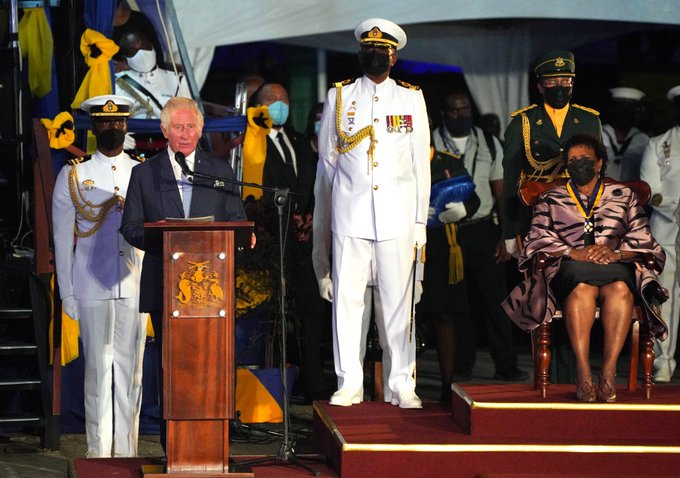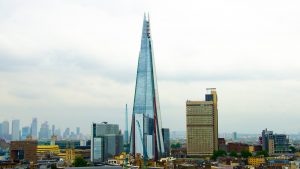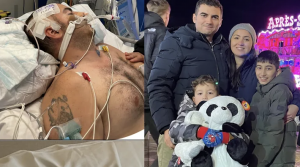Barbados celebrates becoming a republic
Barbados has officially removed Queen Elizabeth II as its head of state and become the world’s newest republic.
In an overnight ceremony in the capital, Bridgetown, Dame Sandra Mason was sworn in as president.
The Prince of Wales and Barbadian singer Rihanna attended the event, which coincided with the country’s 55th anniversary of independence.
In a speech, Prince Charles acknowledged the “appalling atrocity of slavery” the Caribbean island suffered.
The new era for Barbados ends Britain’s centuries of influence, including more than 200 years when the island was a hub for the transatlantic slave trade.
To signify the official change of power, a final salute was made to the British monarchy and the Royal Standard flag was lowered and replaced.
Speaking as the guest of honour at the event, Prince Charles reiterated the continuing ties between the two nations despite the constitutional status change.
He described the moment as a new beginning before being awarded the prestigious Order of Freedom of Barbados by the new president.
The Queen sent the country her “warmest good wishes” for “happiness, peace and prosperity in the future” and said the nation holds a “special place” in her heart.
Dame Sandra Mason, 72, the island’s governor-general since 2018, was named as president-elect of the nation following a vote in parliament last month. She now replaces the Queen as the head of state.
“Vessel Republic Barbados has set sail on her maiden voyage. May she weather all storms and land our country and citizens safely on the horizons and shores which are ahead of us,” she said after being sworn in.
Barbados announced its plan to become a republic last year, but it will remain within the Commonwealth.
Formerly known as the British Commonwealth, the Commonwealth of Nations is a loose association of former British colonies and current dependencies, along with some countries that have no historical ties to Britain.
The country’s prime minister has described the move to a republic as a “seminal moment” which will see Barbados fully leave its colonial past behind.
It was one of England’s first slave colonies. English settlers first occupied the island in 1627 and, under British control, it became a sugar plantation economy using enslaved people brought in from Africa.
Slavery was abolished in Barbados in 1834 and the country became fully independent in 1966.
In his speech on Tuesday, Prince Charles spoke of the “appalling atrocity of slavery” which he said “forever stains our history”.
Before Barbados, the last nation to remove the Queen as head of state was Mauritius in 1992.









